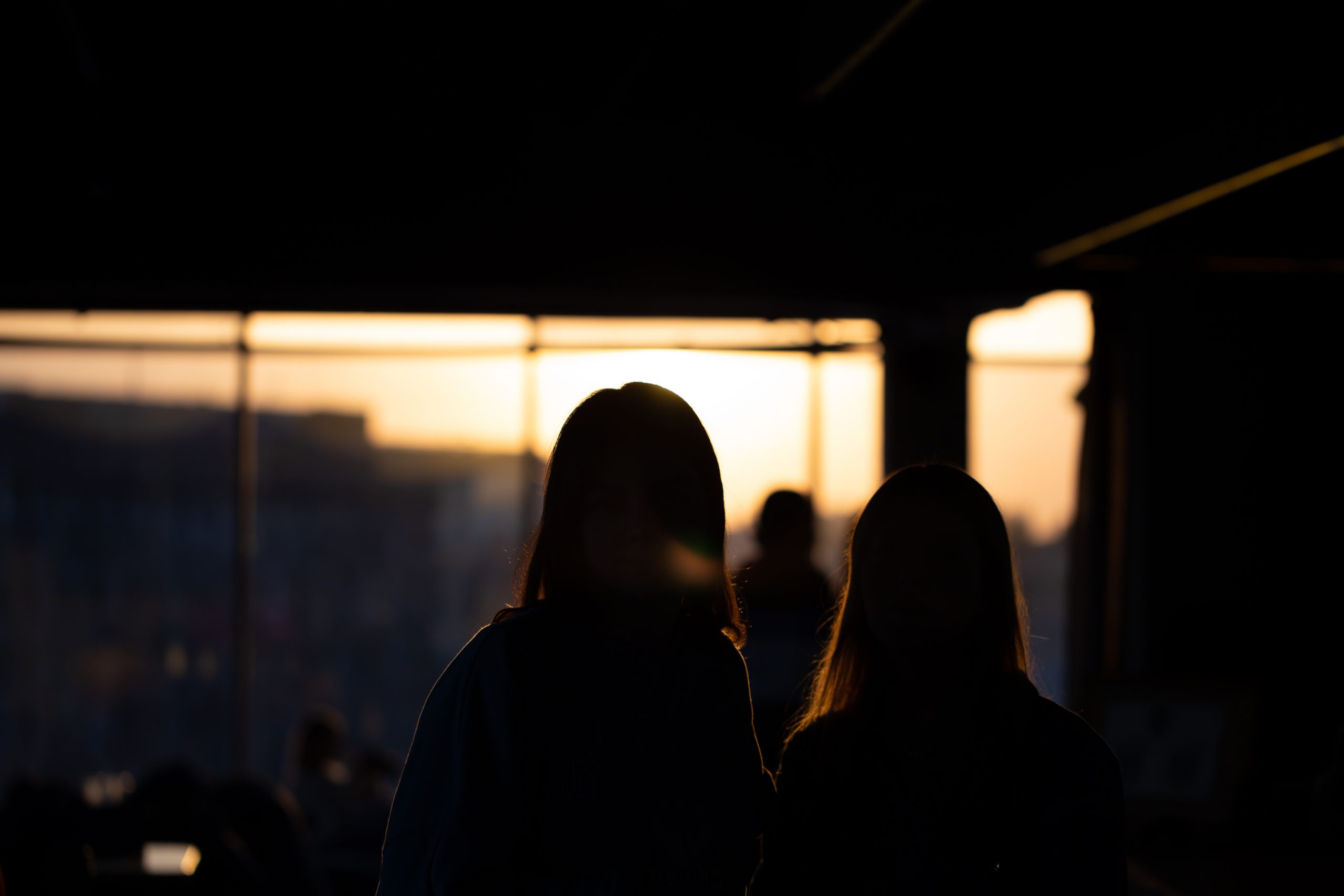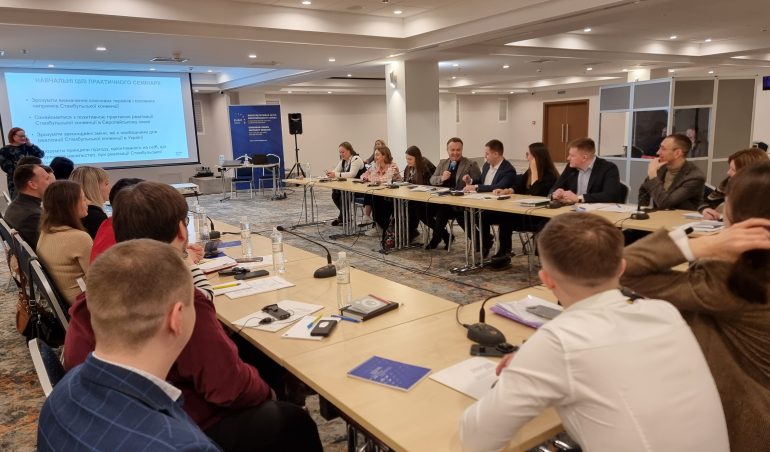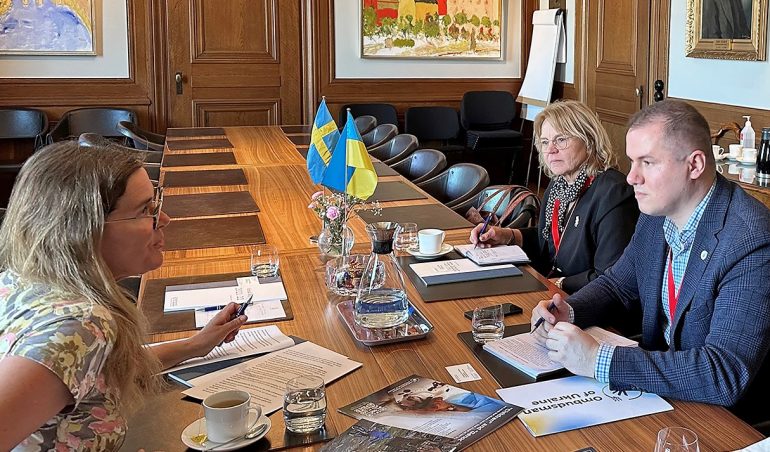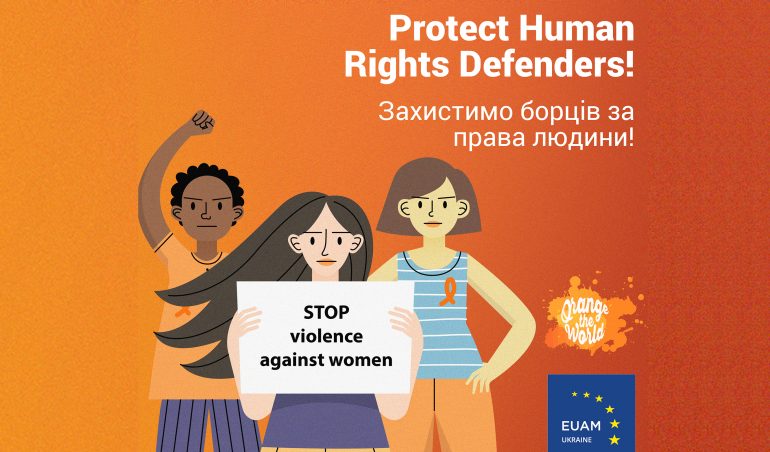Alyona Kryvulyak: “La Strada hotline is witnessing a trauma which might destroy a generation”
May 13, 2022The phone rang for the first time on March 4th 2022. At the other end, there was a woman from Kherson. The call was unusual, and she did not report the rape immediately. After 40 minutes, she shared what had really happened to her and her daughter – Russian soldiers/occupiers had raped them during the early days of the war.
“They had a routine. First, they searched for my husband. They knew he was defending our country. Then, they checked our phones, trying to find evidence of my husband’s whereabouts, and then they plundered every little thing they could get their hands on. Usually, they came during the day, but once, they were banging on our door in the evening. I was afraid they would start to shoot, so I had to let them in. Three intoxicated soldiers full of hate, contempt and lust entered our home. They forced me to undress. I cried that they should not touch me, but they did. They raped me. My daughter ran out and prayed that the soldiers would let me go. Then they did something unimaginable. They raped my underage daughter multiple times and forced me to watch.”
This was the first rape by Russian occupiers reported to us”, noted Alyona Kryvulyak, Director of the La Strada-Ukraine national hotline. “Many more came after”, sighs its Director. “We have contacted this woman quite a few times. She did not want to look for medical help but promised to take her daughter to the doctor so that she could get a rape-survivor kit,” continues Ms Kryvulyak. “None of the Russian occupiers used contraceptives, and unwanted pregnancy and sexually transmitted diseases are a huge risk.”
Rape as a form of warfare
Since the full-scale war broke out, La Strada’s hotline for psychological aid has recorded several cases of rape, including among children. The risk of sexual violence increased significantly during the war. Quickly, the use of rape took the shape of a systemic, coordinated military tactic. Women and girls are the primary targets, but the victims also include children, the elderly, males and females.
Since 1997, the La Strada-Ukraine NGO has supported survivors of trafficking, domestic violence and sexual assault. “The war turned everything upside down. Our hotline workers have been listening to the never-ending stream of testimonies from abused people,” shared Alyona Kryvulyak.
La Strada-Ukraine has two national hotlines operating. “After the war started, we understood that many people were not able to reach us. We quickly announced that we would launch our services also on social media platforms. During the first month of the war, we received over 10,000 calls or messages”, explained Ms Kryvulyak. “When a rape victim survives the ordeal, they feel safe for a moment. But then, the trauma follows this person for a lifetime. It is devastating.”
Most of the calls come from Kyiv and its surroundings. After the Russian troops refocused their war effort on Ukraine’s East and withdrew from the cities and suburbs around the capital, the atrocities they had done were revealed. “Rape is an underreported crime even in peaceful times”, noted Ms Kryvulyak. “I am afraid that what we are reporting will only be the tip of the iceberg.”
Document today to investigate and prosecute tomorrow
Rape and sexual assault are considered war crimes and a breach of international humanitarian law. Both Ukraine’s prosecutor general and the International Criminal Court (ICC) have said they will open investigations into reported sexual violence. “There is a long journey ahead, and sometimes it can take a very long time — years — for survivors of sexual violence to come forward,” said Alyona Kryvulyak.

Finding clear evidence that rape and other sex crimes were committed as a tactic of war is rare, and cases are demanding to prove. That is one of the many reasons why the EU Advisory Mission (EUAM) Ukraine also supports Ukrainian authorities in documenting, investigating, and prosecuting war crimes. In addition, the Mission is cooperating with Ukraine’s Ombudsperson for human rights, Lyudmyla Denisova.





